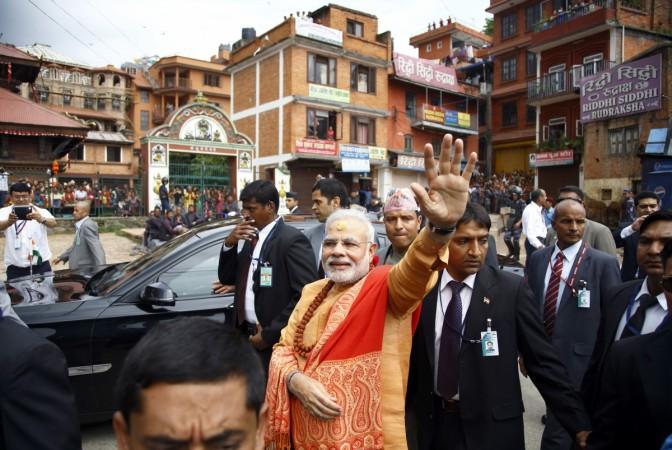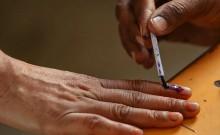
Prime Minister Narendra Modi offered special prayers at Nepal's famous and centuries-old Pashupatinath Temple on Monday.
The Hindu nationalist leader was at the temple of Lord Shiva for around 45 minutes, on the day referred to as "Shravan Ashtami" - which is considered auspicious, the DNA reported.
The Indian Prime Minister, who assumed office in May, is on the final day of his maiden trip to Nepal.
Felt extremely blessed on offering prayers at the Pashupatinath Temple this morning pic.twitter.com/t4EK1Yo6AV
— Narendra Modi (@narendramodi) August 4, 2014
According to E Kantipur, a local news website, Modi reached the temple at 9:25 am amid unprecedented security and remained there for about an hour. Devotees were barred from entering the temple from 7:30 am onwards.
Modi also offered 2,500 kg of white sandalwood to the temple during the puja, various newspapers have reported.
Mondays of "Shravan", which Hindus consider to be the month of Lord Shiva, are thought to be highly auspicious according to the Hindu mythology and millions of devotees visit temples of Lord Shiva on this day.
"Another major significance of my Nepal visit is that I will have the opportunity of paying obeisance at Pashupatinath Temple on the special occasion of 'sawan ki somwar' (Monday of Shravan," the leader had said in an earlier tweet.
Modi is among the high-profile Indian pilgrims who visisted the Pashupatinath Temple. The shrine, in the past, was visited by Indian dignitaries such as R Venkataraman, IK Gujral, PV Narasimha Rao and Jaswant Singh among others.
According to local reports, the temple premises had undergone a special makeover such as decorations within the temple and surroundings and paintings of major routes leading to the shrine, as part of preparations to welcome Modi.
Modi's is the first bilateral visit by an Indian Prime Minister to Nepal in 17 years. While pledging not to interfere in Nepal's internal affairs, he announced $1 billion soft load and said he was expecting to forge a new relationship with the Himalayan nation, in the first address by a foreign head of government in Nepal's Parliament after 1990.









